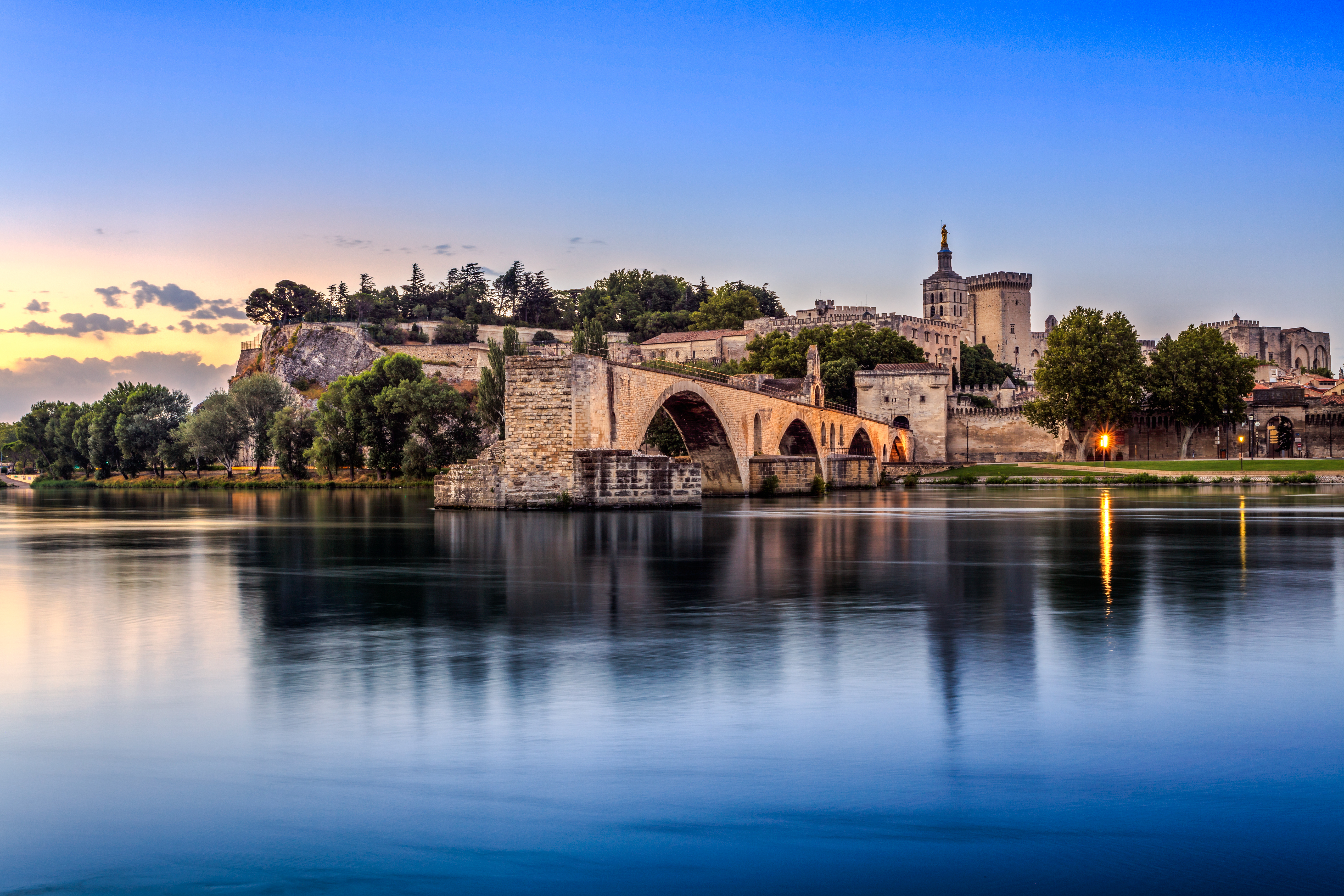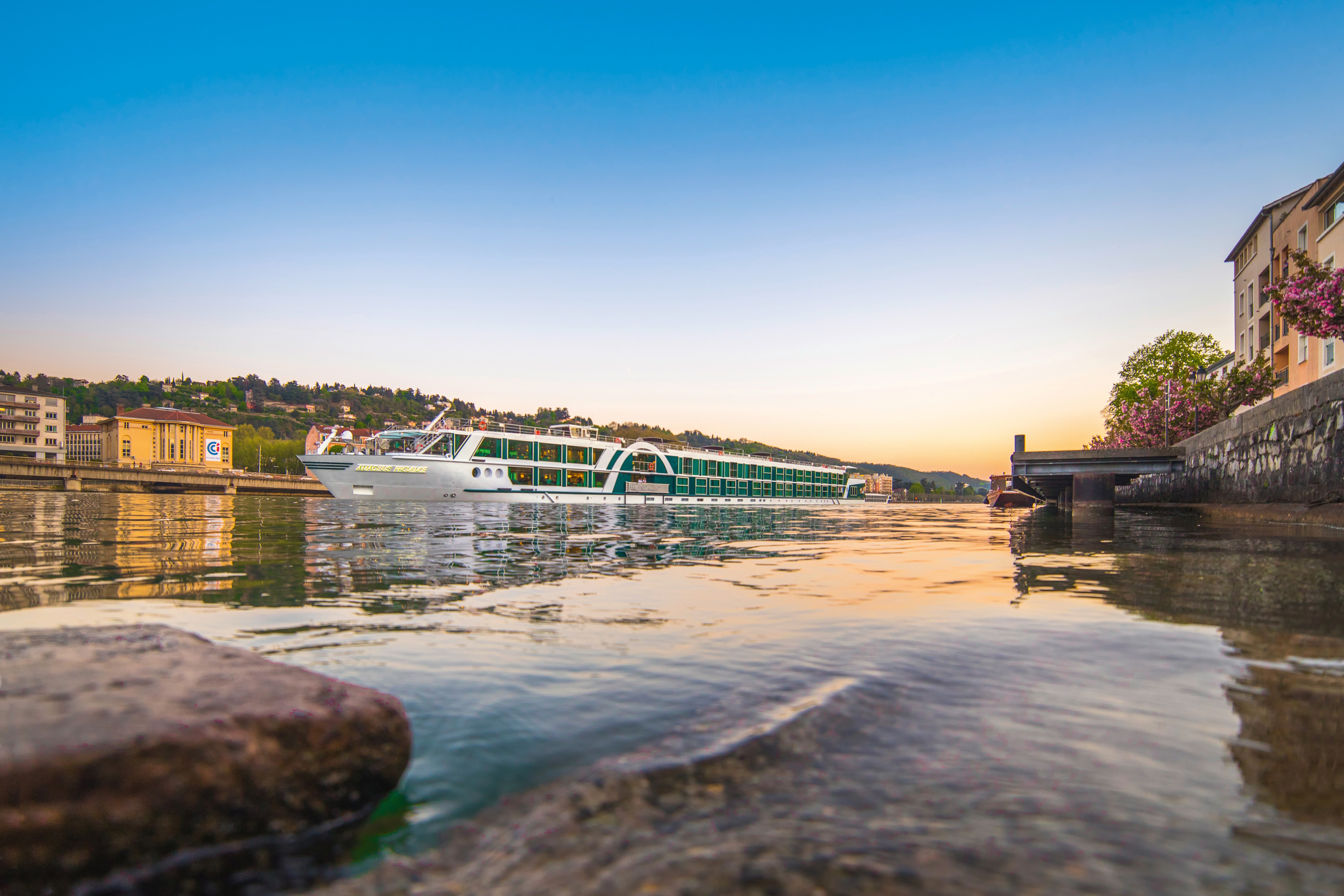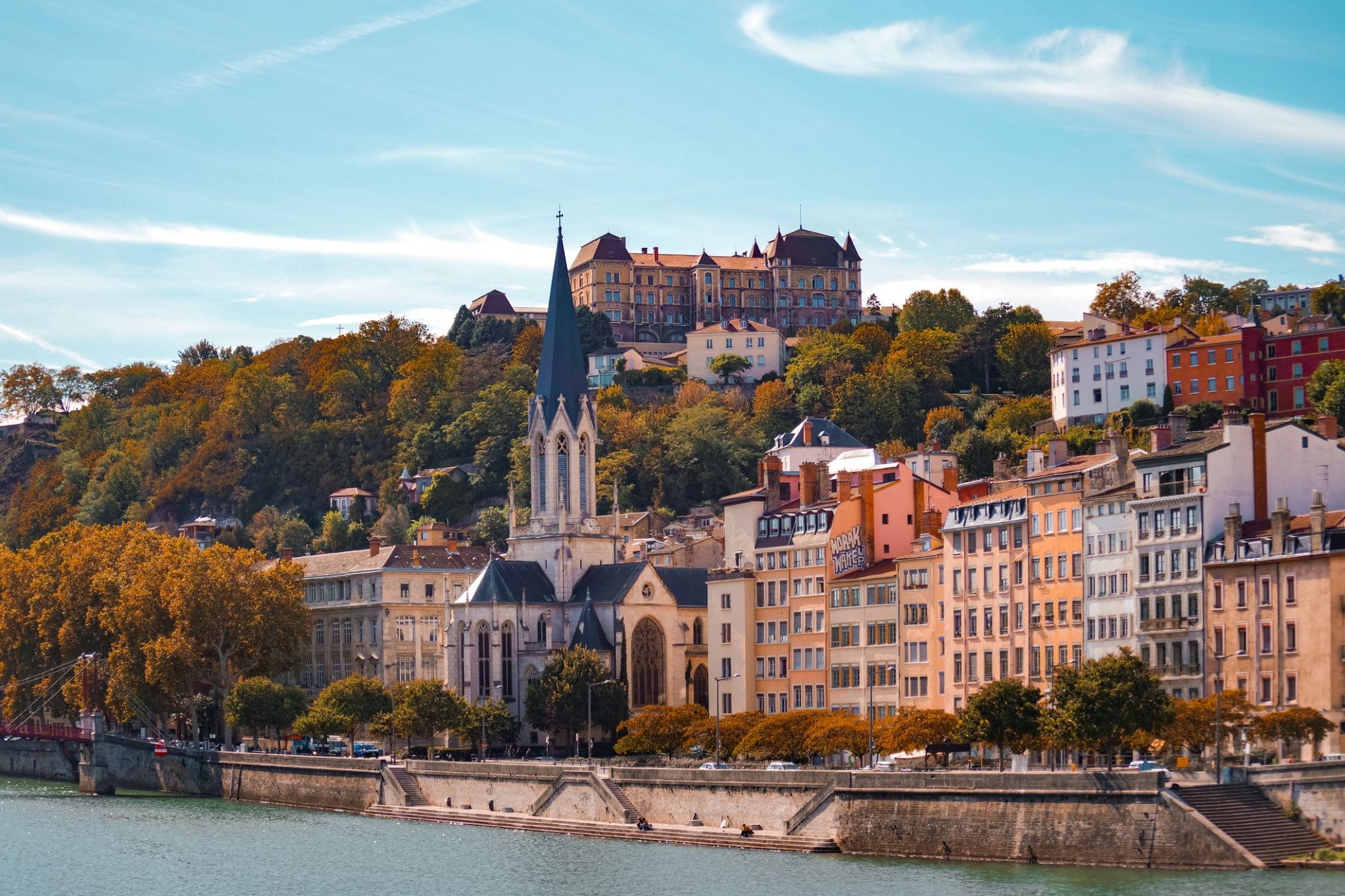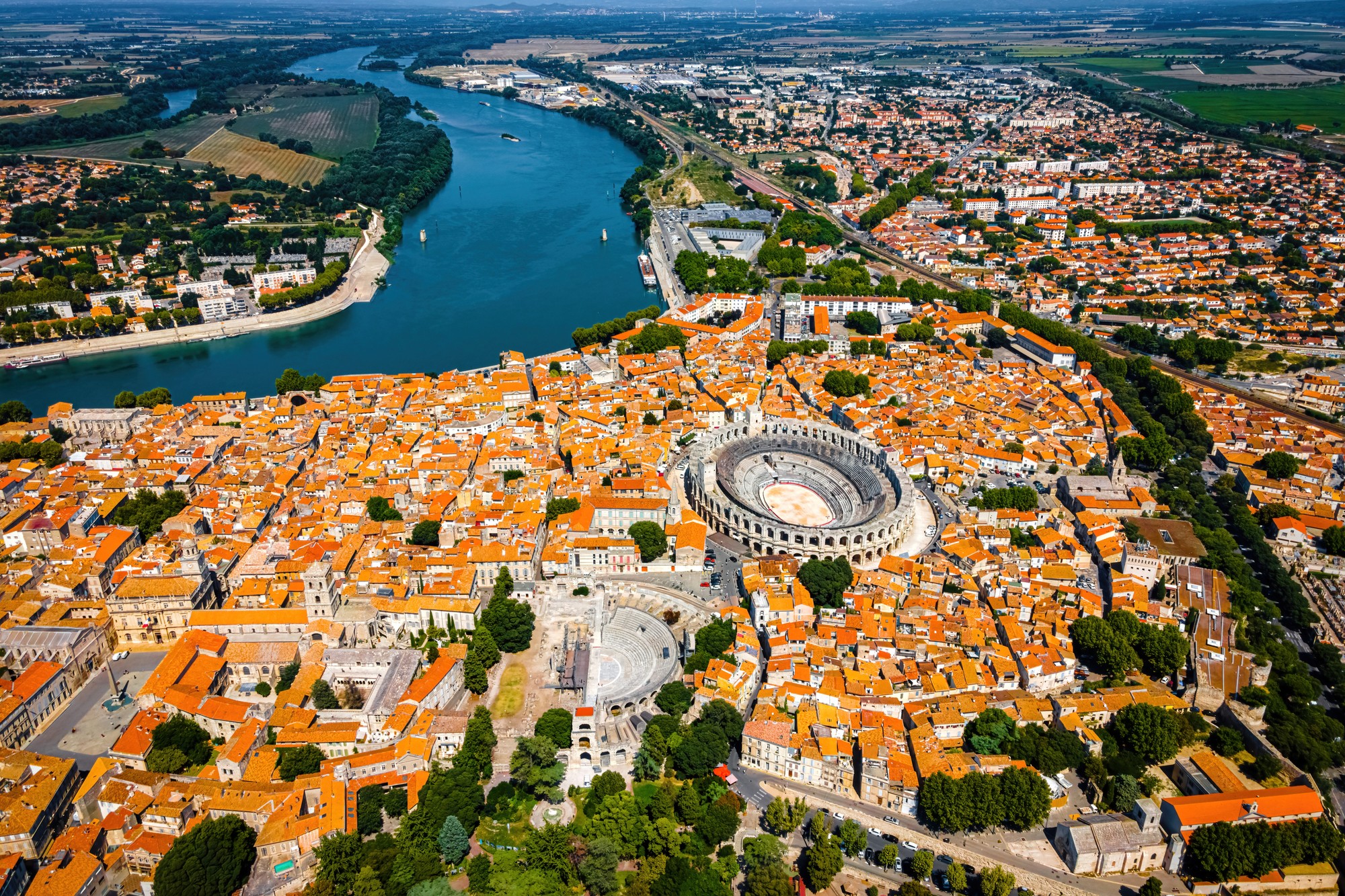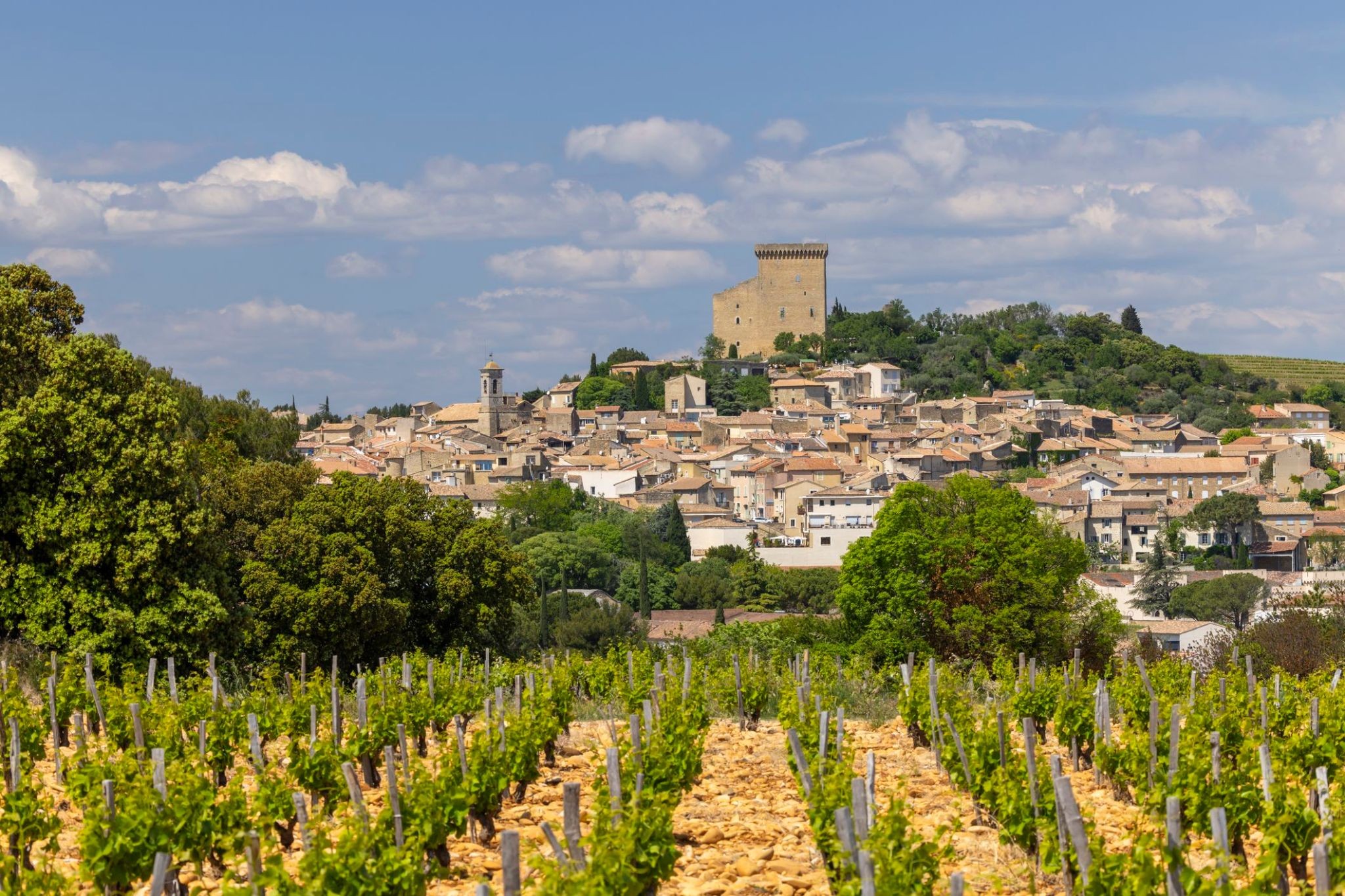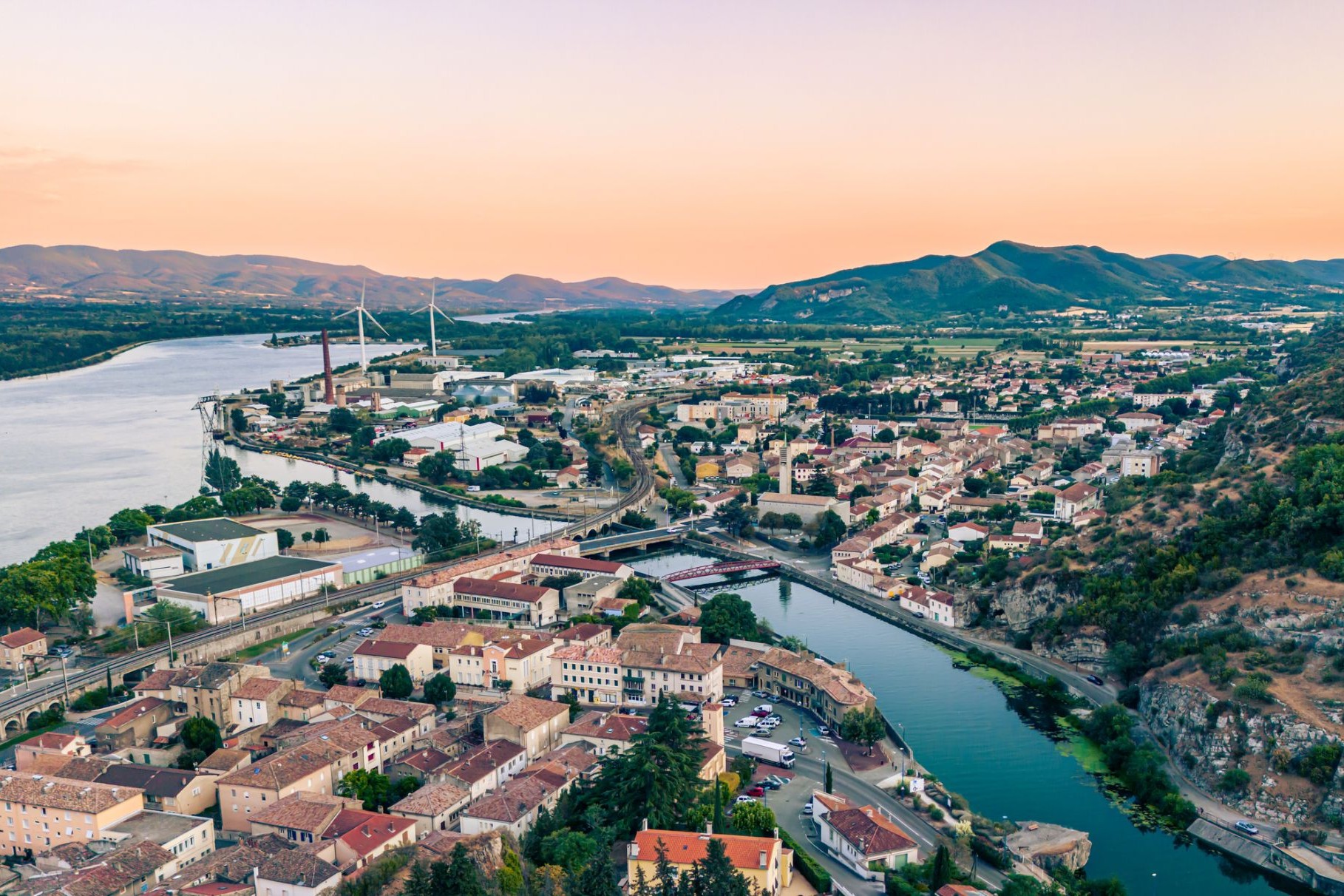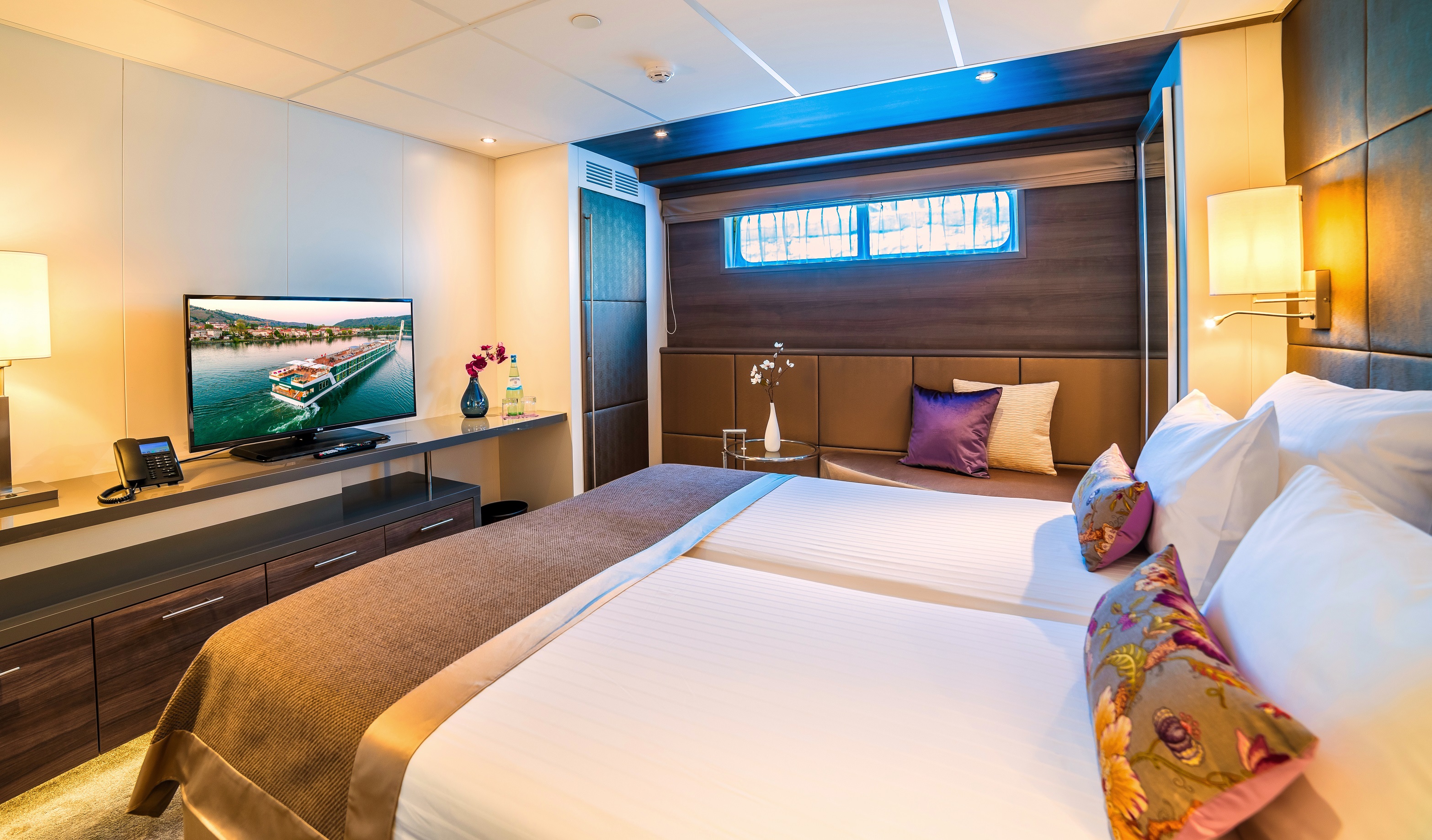Cruise: 30,890,654
Treasures of Burgundy and Provence: Rhone & Saône
| Cruise Region : Europe |
| Company : Lueftner Cruises |
| Ship : AMADEUS Provence |
| Journey Start : Wed 25 Jun 2025 |
| Journey End : Wed 02 Jul 2025 |
| Count Nights : 7 nights |
Schedule
| Day | Date | Port | Arrival | Departure |
|---|---|---|---|---|
| 1 | 25.06 Wed | Lyon / France | 22:00 | |
| 2 | 26.06 Thu | Mason / France | 06:00 | 18:00 |
| 3 | 27.06 Fri | Chalon-sur-Saône / France | 01:00 | 14:30 |
| 3 | 27.06 Fri | 17:30 | 19:30 | |
| 4 | 28.06 Sat | Lyon / France | 07:00 | 12:00 |
| 5 | 29.06 Sun | Avignon / France | 09:00 | 19:00 |
| 6 | 30.06 Mon | Arles / France | 00:01 | 18:30 |
| 7 | 1.07 Tue | Chateauneuf-du-Rhone / France | 04:30 | 08:30 |
| 7 | 1.07 Tue | Le Pouzin / France | 12:30 | 14:00 |
| 8 | 2.07 Wed | Lyon / France | 02:00 |
Suites & Staterooms
Luxury accommodation in an outside river-view stateroom of your choice: Spacious Mozart Suites with a walk-out balcony, stateroom cabins on Mozart and Strauss Decks with drop-down Panorama Retractable Windows offering a wide-open view (except Amadeus Brilliant)
Individual climate control and in-room safe
Choice of bed configuration in all categories (double or twin bedding)
Gourmet Dining
Gourmet dining featuring breakfast, multi-course lunches and dinners with menu choices (including vegetarian options), afternoon tea and late-night snack
Free-flowing hand-selected wines from the best wine regions of Europe served with dinner on board
Coffee and tea available 24 hours a day in the Amadeus Club
Welcome and Farewell Cocktail Reception, Welcome Dinner and Captain’s Gala Dinner
Voyage of Discovery
Personalized service of an experienced, multilingual AMADEUS Cruise Director
AMADEUS digital audio system for all guided excursions
Variety of enriching onboard programs, including fascinating lectures, cooking demonstrations, local cultural performances, and music by our onboard musicians
Complimentary use of onboard bicycles for independent exploration
Onboard fitness center open 24 hours a day
All port taxes, embarkation, disembarkation and lock fees included in your cruise fare
Travel Terms & Conditions
PREAMBLE
These travel conditions are issued in the name of the carrier, Lüftner Cruises GmbH / A-6020 Innsbruck, for the travel programs included in this brochure. In the following, this is referred to as “the carrier”. The transportation of passengers and baggage on any of the vessels offered is governed solely by the Terms and Conditions of the Passenger Ticket Contract (available on request).
PAYMENT POLICY
A deposit of 10% per person is required to secure a confirmed reservation. When more than one cruise is booked, deposit and payment policies apply per cruise. The balance is due for payment no later than 20 days prior to departure, despite no further request for payment being made. All reservations are subject to cancellation if payments are not received by the due date, and in such a case the carrier is entitled to cancel the reservation/s in accordance with the cancellation fees specified in these terms and conditions. Upon full payment by the participant(s) of the amount specified in the invoice, the carrier agrees to arrange for the provision of the services as described in this brochure. Your payment or acceptance of a ticket constitutes your agreement to the terms and conditions of travel.
CANCELLATION POLICY
In cases of cancellation the carrier has the right to demand the following cancellation fees, calculated as a percentage of the travel price and dependent on the number of days left until the planned departure date:
Days Before Departure
121 days and more 10%
120 – 90 days 15%
89 – 60 days 35%
59 – 30 days 50%
29 – 15 days 80%
14 – 1 day(s) 85%
on departure day 90%
Cancellations must be made in writing. Cancellation invoices are due for payment as soon as they are received
-
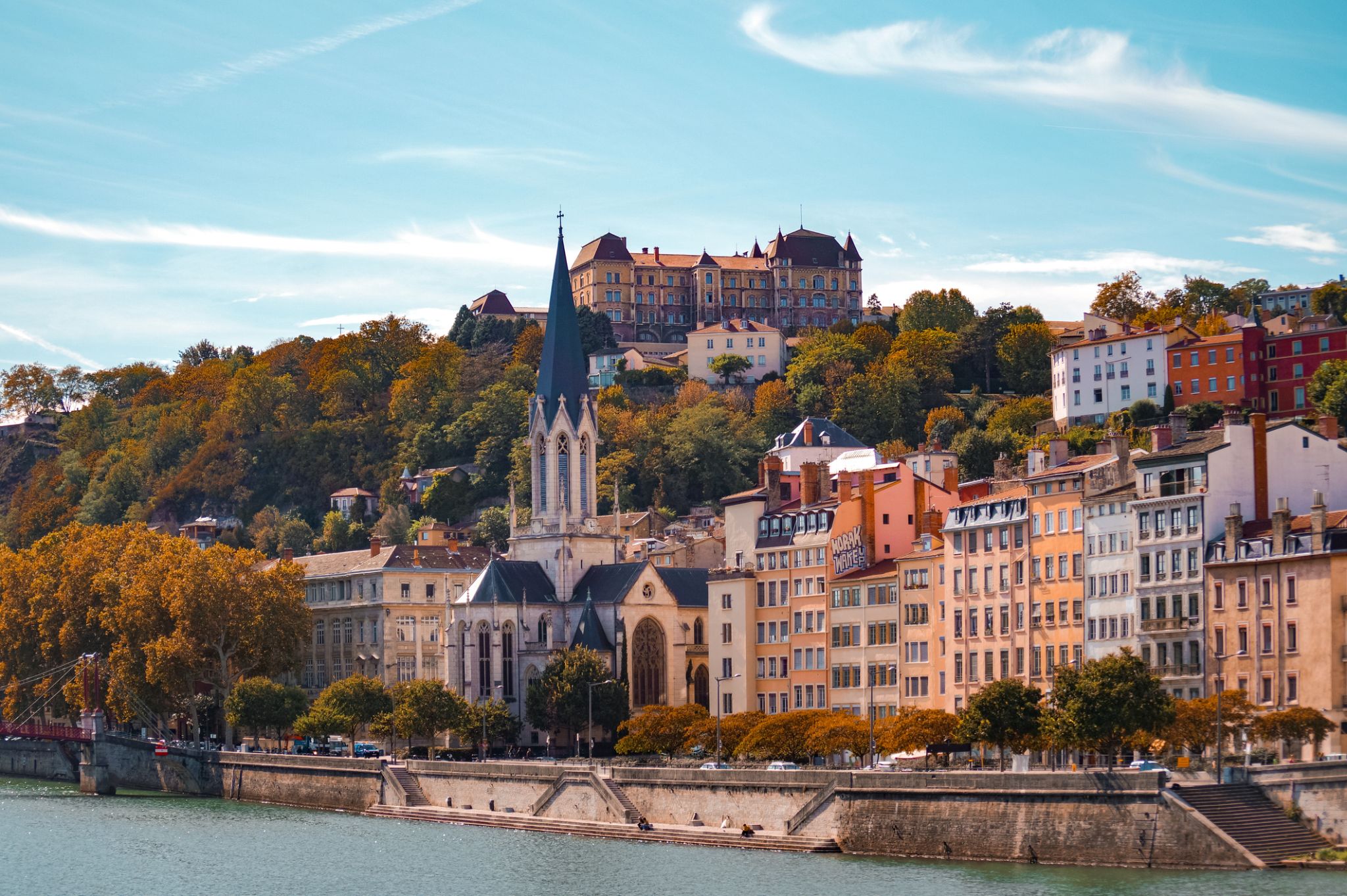 Day 1: 22:00
Day 1: 22:00Lyon / France
Lyon is the third-largest city and second-largest urban area of France. It is located in the country's east-central part at the confluence of the rivers Rhône and Saône,about 470 km (292 mi) south from Paris, 320 km (199 mi) north from Marseille and 56 km (35 mi) northeast from Saint-Étienne. Inhabitants of the city are called Lyonnais.
Lyon had a population of 513,275 in 2015. It is the capital of the Metropolis of Lyon and the region of Auvergne-Rhône-Alpes. The Lyon metropolitan area had a population of 2,265,375 in 2014, the second-largest urban area in France. The city is known for its cuisine and gastronomy, and historical and architectural landmarks; part of it is a registered as a UNESCO World Heritage site. Lyon was historically an important area for the production and weaving of silk. Lyon played a significant role in the history of cinema: it is where Auguste and Louis Lumièreinvented the cinematograph. It is also known for its light festival, the Fête des Lumières, which begins every 8 December and lasts for four days, earning Lyon the title of Capital of Lights.
Economically, Lyon is a major centre for banking, as well as for the chemical, pharmaceutical, and biotech industries. The city contains a significant software industry with a particular focus on video games, and in recent years has fostered a growing local start-up sector. Lyon hosts the international headquarters of Interpol, the International Agency for Research on Cancer and Euronews. It was ranked 19th globally and second in France for innovation in 2014. It ranked second in France and 39th globally in Mercer's 2015 liveability rankings.
-
 Day 2: 06:00-18:00
Day 2: 06:00-18:00Mason / France
-
 Day 3: 01:00-14:30
Day 3: 01:00-14:30Chalon-sur-Saône / France
Chalon-sur-Saône is a commune in the Saône-et-Loire department in the region of Bourgogne-Franche-Comté in eastern France.
It is a sub-prefecture of the department. It is the largest city in the department; however, the department capital is the smaller city of Mâcon.
Chalon-sur-Saône lies in the south of the Bourgogne-Franche-Comté region of France. It is located on the Saône river, and was once a busy port, acting as a distribution point for local wines which were sent up and down the Saône river and the Canal du Centre, opened in 1792.
Though the site (ancient Cabillonum) was a capital of the Aedui and objects of La Tène culture have been retrieved from the bed of the river here, the first mention of Cavillonum is found in Commentarii de Bello Gallico (VII, chs. 42 and 90). The Roman city already served as a river port and hub of road communications, of the Via Agrippa and side routes. In 354 AD the Roman Emperor, Constantius II stationed the Roman 7th Army in Chalon (then called Cabyllona) for an invasion against the brother kings, Gundomadus and Vadomarius of the Alamanni. However, not having received supplies, the Roman troops revolted, and were pacified by the grand chamberlain Eusebiuswith money. In Late Antiquity the city had dwindled so much that a wall round it encircled fifteen hectares.
Saint Marcellus of Chalons (Saint Marcel) is said to have been martyred here in 179 AD. Chalon became one of the de facto capitals of the kingdom of Burgundy under Guntram, king from 561 to 592, who died here. Guntram also promoted the cult of Saint Marcellus. The bishopric of Chalon-sur-Saône, a suffragan of the Archdiocese of Lyon, was established here in the same century, and a Church Council was held here from 644–655. The see was merged into the diocese of Autunshortly after the French Revolution.
Chalon in the 19th century is best known as the birthplace of photography. Its most famous resident, Nicéphore Niépcealso has a lycée (secondary school) named after him. There is a museum which contains some early photography relics, located on the Quai des Messageries in the town, containing more than two million photographs and many old artefacts such as cameras and other equipment for old and modern photography. Also on display are Niépce's 1807 Pyréolophore which is probably the world's first internal combustion engine, plus his 1818 implementation of a dandy horse, for which he coined the word vélocipède.
Another famous resident is Dominique Vivant Denon (1747–1825) who was involved in the creation of the Louvre museum, converting the former royal palace into a museum after the French Revolution
-
 Day 3: 17:30-19:30
Day 3: 17:30-19:30 -
 Day 4: 07:00-12:00
Day 4: 07:00-12:00Lyon / France
Lyon is the third-largest city and second-largest urban area of France. It is located in the country's east-central part at the confluence of the rivers Rhône and Saône,about 470 km (292 mi) south from Paris, 320 km (199 mi) north from Marseille and 56 km (35 mi) northeast from Saint-Étienne. Inhabitants of the city are called Lyonnais.
Lyon had a population of 513,275 in 2015. It is the capital of the Metropolis of Lyon and the region of Auvergne-Rhône-Alpes. The Lyon metropolitan area had a population of 2,265,375 in 2014, the second-largest urban area in France. The city is known for its cuisine and gastronomy, and historical and architectural landmarks; part of it is a registered as a UNESCO World Heritage site. Lyon was historically an important area for the production and weaving of silk. Lyon played a significant role in the history of cinema: it is where Auguste and Louis Lumièreinvented the cinematograph. It is also known for its light festival, the Fête des Lumières, which begins every 8 December and lasts for four days, earning Lyon the title of Capital of Lights.
Economically, Lyon is a major centre for banking, as well as for the chemical, pharmaceutical, and biotech industries. The city contains a significant software industry with a particular focus on video games, and in recent years has fostered a growing local start-up sector. Lyon hosts the international headquarters of Interpol, the International Agency for Research on Cancer and Euronews. It was ranked 19th globally and second in France for innovation in 2014. It ranked second in France and 39th globally in Mercer's 2015 liveability rankings.
-
 Day 5: 09:00-19:00
Day 5: 09:00-19:00Avignon / France
On the banks of the Rhône, nestled among the picturesque landscapes of Provence, lies Avignon — a city where every stone echoes a grand historical legacy. In the 14th century, it became the residence of the popes, and to this day, its appearance reflects its former glory: massive walls, the majestic Papal Palace, and Gothic towers create the atmosphere of a medieval fairy tale. A walk through the old town with its narrow streets and cozy squares feels like stepping back in time.
Avignon doesn’t live in the past alone. Each summer, thousands of art lovers gather here for the renowned theatre festival that fills the streets with music, performances, and cultural vibrancy. Add to that the local markets scented with lavender and spices, the taste of Provençal cuisine, and the soft sun of southern France — and you’ll understand why Avignon is considered one of the most enchanting corners of the country.
-
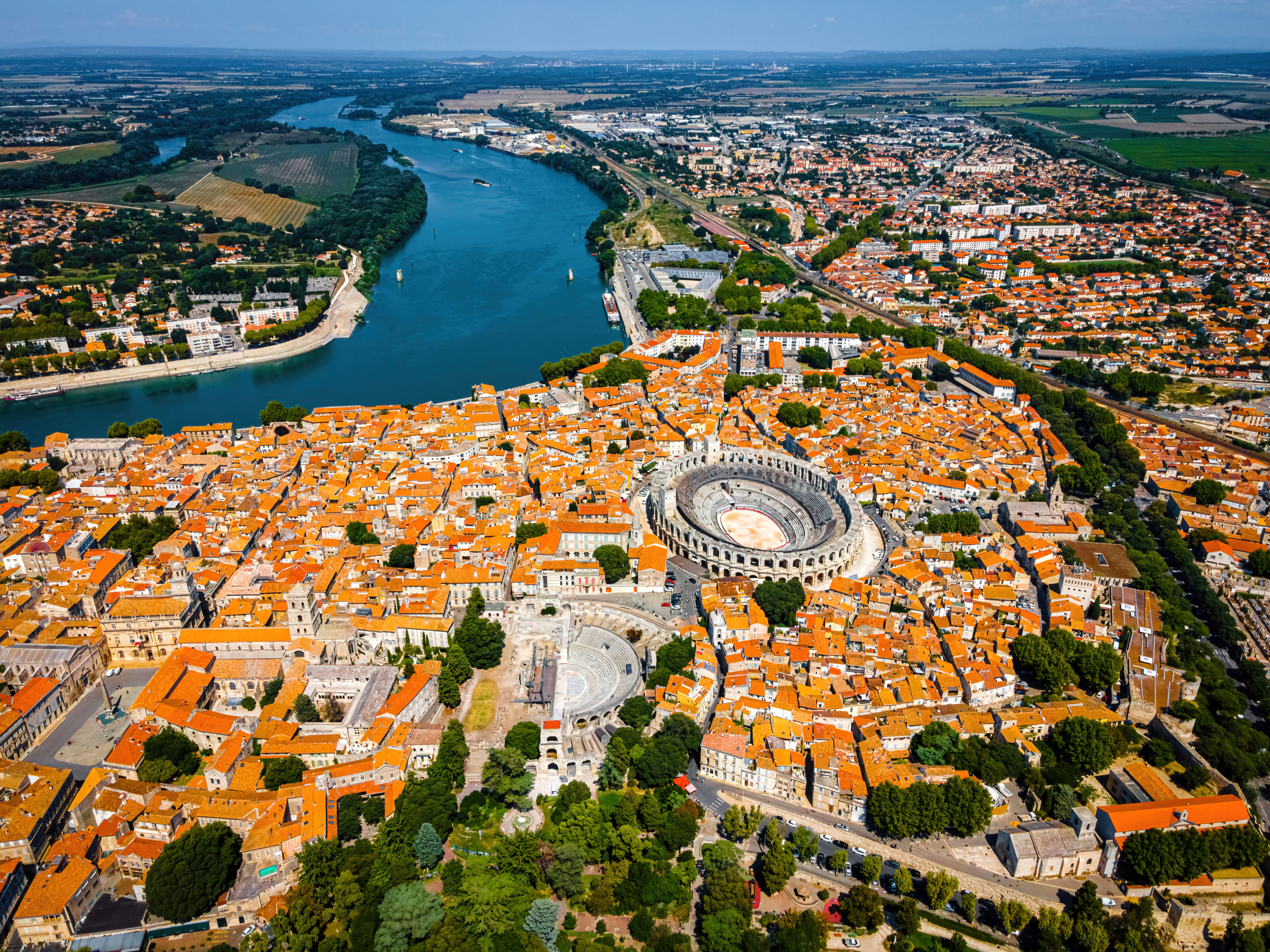 Day 6: 00:01-18:30
Day 6: 00:01-18:30Arles / France
Arles is a city and commune in the south of France, in the Bouches-du-Rhône department, of which it is a subprefecture, in the former province of Provence.
A large part of the Camargue is located on the territory of the commune, making it the largest commune in Metropolitan France in terms of territory (though Maripasoula, French Guiana, is much larger). The city has a long history, and was of considerable importance in the Roman province of Gallia Narbonensis. The Roman and Romanesque Monuments of Arles were listed as UNESCO World Heritage Sites in 1981. The Dutch post-Impressionist painter Vincent van Goghlived in Arles from 1888 to 1889 and produced over 300 paintings and drawings during his time there. An international photography festival has been held in the city since 1970.
-
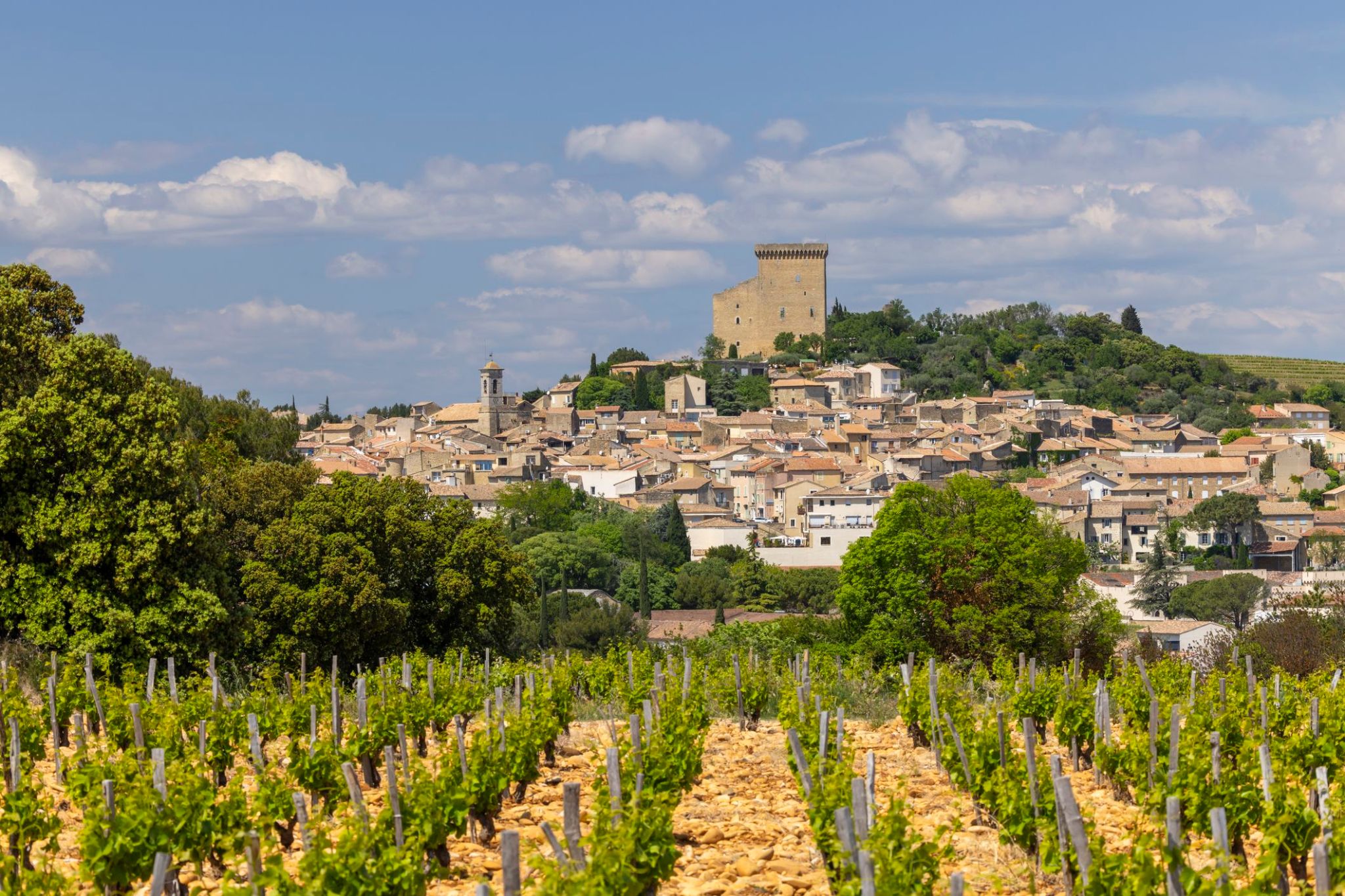 Day 7: 04:30-08:30
Day 7: 04:30-08:30Chateauneuf-du-Rhone / France
In the picturesque Provence region, in the southern part of France, lies Chateauneuf-du-Rhone — a small village renowned for its vineyards and outstanding wines. This place became a wine production center thanks to the famous Châteauneuf-du-Pape wine, which is globally acclaimed for its exceptional taste and unique qualities. Visitors to the village will have the opportunity to enjoy tours of the wineries, where they can learn about the ancient traditions of winemaking and taste the finest varieties.
Chateauneuf-du-Rhone is not only a wine-producing hub but also a picturesque location with a rich historical heritage. Here, one can stroll through ancient streets lined with medieval buildings, including castles and churches, or enjoy views of the vineyards and surrounding mountains. This corner of Provence attracts travelers eager to explore the culture of the region and bask in its natural beauty.
-
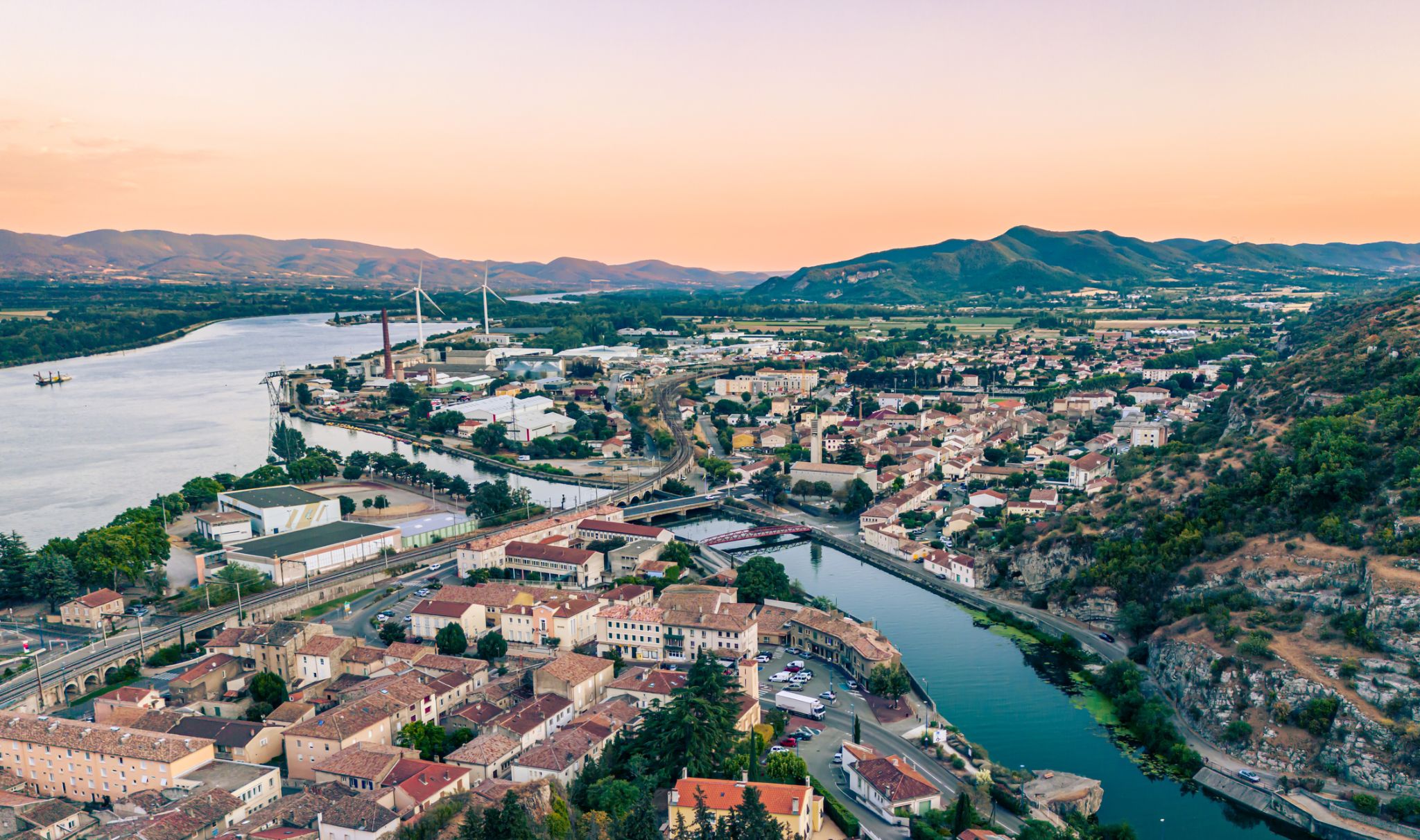 Day 7: 12:30-14:00
Day 7: 12:30-14:00Le Pouzin / France
-
 Day 8: 02:00
Day 8: 02:00Lyon / France
Lyon is the third-largest city and second-largest urban area of France. It is located in the country's east-central part at the confluence of the rivers Rhône and Saône,about 470 km (292 mi) south from Paris, 320 km (199 mi) north from Marseille and 56 km (35 mi) northeast from Saint-Étienne. Inhabitants of the city are called Lyonnais.
Lyon had a population of 513,275 in 2015. It is the capital of the Metropolis of Lyon and the region of Auvergne-Rhône-Alpes. The Lyon metropolitan area had a population of 2,265,375 in 2014, the second-largest urban area in France. The city is known for its cuisine and gastronomy, and historical and architectural landmarks; part of it is a registered as a UNESCO World Heritage site. Lyon was historically an important area for the production and weaving of silk. Lyon played a significant role in the history of cinema: it is where Auguste and Louis Lumièreinvented the cinematograph. It is also known for its light festival, the Fête des Lumières, which begins every 8 December and lasts for four days, earning Lyon the title of Capital of Lights.
Economically, Lyon is a major centre for banking, as well as for the chemical, pharmaceutical, and biotech industries. The city contains a significant software industry with a particular focus on video games, and in recent years has fostered a growing local start-up sector. Lyon hosts the international headquarters of Interpol, the International Agency for Research on Cancer and Euronews. It was ranked 19th globally and second in France for innovation in 2014. It ranked second in France and 39th globally in Mercer's 2015 liveability rankings.

